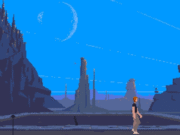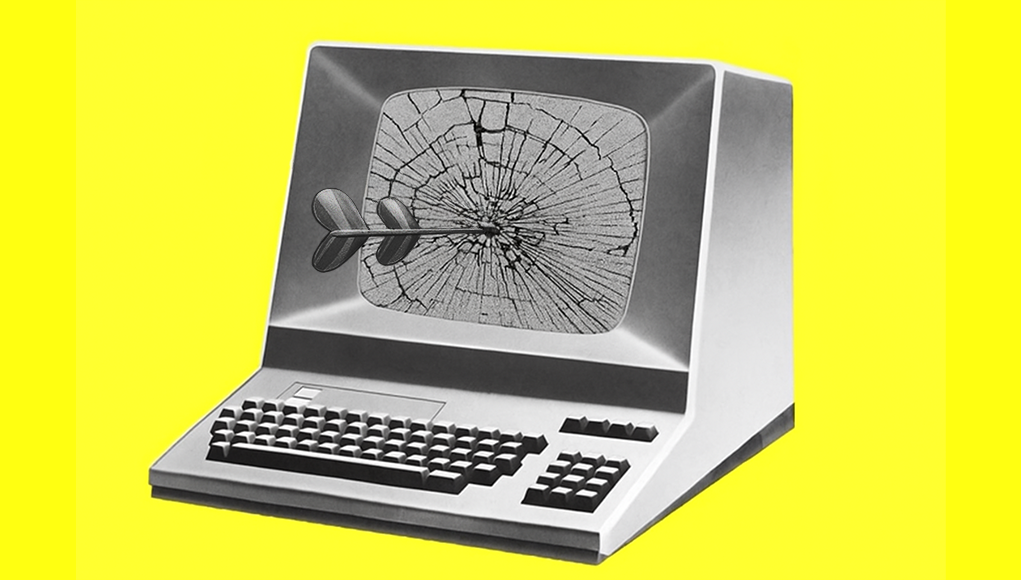From ghosting bots to vibe detectors, these tools claim to help you find love. But are we outsourcing too much to the machines?
Dating has always been a mess of vibes, timing, and bad decisions — now we’ve added algorithms to the mix.
In 2025, the rise of AI in dating is no longer just a swipe-right revolution — it’s a full-on algorithmic takeover. Tools promise to write your flirty openers, predict your heartbreaks, even whisper better banter into your AirPods during dates. And sure, some of it actually helps. But if we all start flirting the same way, ghosting with the same template, and syncing to the same emotionally-optimized playlist… what even is romance anymore?
Let’s unpack 10 of the AI tools real people are using to date “better,” with all their perks, pitfalls, and red-flag energy.
1. RizzGPT
What it does: RizzGPT scans your match’s dating profile — photos, bios, job title, music taste, even that one cryptic quote about “energy” — and uses it to generate flirty openers that feel personal, clever, and just the right amount of unhinged. You can even toggle tone settings: “Witty,” “Softboy,” “Intellectual,” or “Dark Academia with a hint of thirst.”
It’s like your charming friend crafting the perfect line for you… except your charming friend is a neural net trained on millions of Tinder chats and Ryan Gosling quotes.
Upside: You’ll never again send “Hey :)” unless the algorithm says it’s ironic and charming. It’s like having a professional flirt in your pocket — and it’s surprisingly good at targeting people’s niche interests.
Downside: You start wondering if they like you or your AI ghostwriter. And if everyone’s using the same tool, your DMs start sounding like a group project written by the same nerd.
Let’s be real: If you can’t carry the conversation after the first line, even the slickest AI rizz can’t save you.
2. TextualHealer
What it does: This tool imports your text threads (yes, all of them) and runs them through a matrix of emotional sentiment, timing patterns, and engagement levels. It scores your match on metrics like “Likely Ghost Probability,” “Breadcrumbing Frequency,” and “Emotional Availability Index.” It can even warn you if your texting tone is veering into “needy emoji spiral” or “dry toast energy.”
It’s like having a therapist and FBI profiler in your pocket — but one who occasionally says things like, “Babe, this convo is giving avoidant-anxious doom loop.”
Upside: Saves you from spending three months decoding “lol” from someone who never plans to meet up. It’s like emotional CliffsNotes for situationships.
Downside: Can turn you into a dating conspiracy theorist. “He replied in lowercase with no punctuation — the algorithm says that’s 89% avoidant!” And suddenly you’re spiral-reading every emoji like it’s a breakup prophecy.
Reminder: Emotional nuance can’t always be parsed by code. Sometimes they’re just bad at texting.
3. GhostBot 3000
What it does: Tired of ending things awkwardly? GhostBot 3000 generates customized, gentle fade-out messages based on your prior convo and relationship depth. You can pick your ghosting style — from “Compassionate Cool Down” to “Soft Boy Evaporate” to the classic “Irish Exit but Make It Text.”
It even offers delay-scheduling so the breakup message hits at 10:42 PM on a Sunday, aka optimal breakup timing according to user data.
This is emotional outsourcing at its peak — for better or (definitely) worse.
Upside: Saves emotional energy, reduces awkwardness, and lets you avoid saying, “I’m not ready to date right now,” for the 17th time this month. It’s the automation of guilt-free exits (whether or not that should exist is… TBD).
Downside: It’s still ghosting. And if everyone uses GhostBot, we’ll all be getting the same breakup line: “You seem great, but I’m focusing on myself right now.” It’s a polite apocalypse of dating closure.I’m focusing on myself right now.”
Hot take: You’re not dating the AI tool. You’re dating a human. Grow a spine and send the awkward text yourself.
4. DateSynth
What it does: DateSynth builds a synthetic version of you — a dating profile clone based on your writing style, photos, captions, and bio inputs. It then sends that profile into the dating app world to test what kinds of people are attracted to your vibe. You’ll get analytics on swipe patterns, message engagement, and “top match archetypes.”
Basically, it lets you test-drive your dating persona like it’s a Sims character — before you commit your real self to another round of small talk.
Upside: See which photos, bios, and “vibes” perform best before you put yourself out there. For data nerds and cautious romantics alike, it’s a pressure-free sandbox to test your digital desirability.
Downside: Your fake self might pull more than you ever have — which is both depressing and slightly offensive. And if you end up falling for someone your clone matched with, therapy will not be optional.
Philosophical crisis warning: If your AI clone gets a soulmate match before you do, do you still get to claim the W?
5. FlirtFineTuner
What it does: This one’s your personal charm coach. It watches how you text — how long you take to reply, what kinds of emojis you use, whether you’re too “LOL” heavy or too dry — and suggests micro-adjustments to keep things intriguing.
It might say things like, “Try responding in 2 hours to increase perceived value,” or “Use this meme instead of that GIF, it’s 17% more effective for Gen Z Libras.”
Yes, it’s data-driven flirting. Yes, we’ve gone too far. But also… kinda works?
Upside: Improves your game if you’re more awkward than endearing. The feedback is surprisingly nuanced, and it can help break the cycle of dry banter and over-apologizing.
Downside:If we all flirt the same optimized way, dating becomes Mad Libs. “You have big golden retriever energy and I love that for us.” Yawn. It’s giving brand voice, not real emotion.
Real love PSA: It’s supposed to be a little messy. Stop trying to flirt like a brand strategist.
6. HypeWing
What it does: HypeWing is like an AI Cyrano in your AirPods. It listens in on your virtual or in-person date (with consent, ideally) and gives real-time feedback. It might suggest talking points, compliment prompts, or topic pivots when it detects boredom, awkward silence, or “oh no I brought up my ex again” energy.
It’s trained on everything from dating show transcripts to TED Talk charisma patterns.
Just don’t get too comfortable — if you start nodding at the bot instead of your date, you’re probably in too deep.
Upside: Perfect for anxious daters or serial oversharers. The bot offers useful nudges before things get awkward — or before you start talking about your attachment issues unprompted.
Downside: You might fall in love with the voice in your ear instead of the person across from you. And if your earbuds die mid-date, so does your ability to be charming.
Cautionary tale: If you say, “That’s a great point,” and they haven’t spoken in 45 seconds… maybe tone it down.
7. ExplainMyEx.AI
What it does: You feed this tool your old texts, emails, and messages with an ex (or several), and it spits out a comprehensive report on where things went wrong. It breaks down attachment style clashes, emotional labor imbalance, communication mismatches, and even “meme incompatibility.”
There’s a dashboard. There are charts. It might tell you, “You emotionally sprinted while they were still lacing their shoes.”
It’s savage but smart — like your most brutally honest friend, but with data.
Upside: Brutally insightful. One user got: “You trauma-dumped in week 2 and forgot their birthday.” It’s like a therapist that doesn’t nod, but absolutely roasts.
Downside: Can lead to overanalysis paralysis. Not everything needs an explanation — sometimes the vibes just died. But now you’ll know it died because you used too many sparkle emojis.
Bonus feature: Gives “growth goals” like “Try not to date another DJ with no furniture.”
8. VibeAligner
What it does: VibeAligner is mood-aware matchmaking. It uses biometric inputs (like screen time, sleep patterns, even tone of voice during calls) to detect when you’re in your optimal “dating self” mode. It then only shows you matches, or lets you reply to messages, when your vibe is considered aligned.
If you’re in a chaotic slump, it’ll literally lock your dating app and say, “Now is not the time to spiral DM.”
Ideal for people who’ve ever looked back at a 2AM Bumble convo and thought, “What was I thinking?”
Upside: Prevents you from doomscrolling Bumble during your cortisol spike. It encourages emotional self-awareness, which — let’s be honest — dating apps rarely do.
Downside: It once told a user “You are currently in a Gremlin Phase. Do not open Tinder.” If we’re all obeying vibe data: are we vibing at all, or just gamifying loneliness?
If we’re all obeying vibe data: Are we vibing at all? Or just playing mood-Tamagotchis with our love lives?
9. MuseMatch
What it does: This tool uses AI to scan your conversations and create a shared playlist between you and a match — reflecting the emotional tone, inside jokes, and pacing of your budding connection.
The result? A highly curated vibe-tape that feels more meaningful than any playlist Spotify Wrapped has ever dared to give.
Bonus: it updates in real time, so if the convo gets flirty, the playlist does too. Downside: if they ghost you, the playlist stays… and it will hurt.
Upside: Music does hit different when it reflects inside jokes and late-night overshares. It turns a casual chat into a moody, personalized soundtrack that feels cinematic.
Downside: You’ll get emotionally attached to the playlist more than the person. “I don’t miss him, I miss our song.” And if it’s a banger, that heartbreak’s gonna loop for weeks.
Critical thought: If AI-curated vibes are better than your real ones… maybe it’s time to re-enter the chat with yourself.
10. The Love Resume
What it does: The Love Resume builds an actual résumé for your romantic life. It includes sections like “Communication Style,” “Top 3 Love Languages,” “Emotional Growth Achievements,” and “Known Red Flags (Verified).” Some people even add “References from Previous Situationships.”
It’s hyper-transparent and weirdly impressive — if not a bit emotionally corporate.
But remember: love isn’t about selling yourself like a product. It’s about connection. And maybe letting someone discover your weirdness after the second date, not in bullet points under “Hobbies.”
Upside: Radical transparency! One user said, “It’s like a LinkedIn for love, with trauma highlights.” It weirdly filters out the emotionally unavailable from the jump.
Downside: Feels transactional. Also: who’s verifying these “references”? Your ex? Your cat? Love isn’t a job interview — and if it is, you’re way underpaid.
Truth bomb: Love isn’t a job interview. It’s not about checking boxes. It’s about feeling something real — ideally without a PDF summary.
If We’re All Dating Like Robots, Who’s Left to Catch Feelings?
Sure, AI can smooth your lines, rate your vibes, and ghost your situationship with disturbingly good grammar. But at some point, all this optimization starts to feel… sterile. Like a conversation that scored 100% on compatibility but 0% on actual spark. If you let the algorithm flirt, plan the date, and analyze the texts — what are you even bringing to the table, besides a phone battery that’s dangerously low?
And look, if these tools keep evolving, they might not need us much longer. RizzGPT can hit on TextualHealer. VibeAligner will set them up on a high-energy Thursday night. GhostBot 3000 can break things off when one gets clingy. It’s giving: Love Island, but for emotionally intelligent software. Honestly, it’s starting to feel like we’re all just background characters in a Kraftwerk song — swiping through our own version of “Computer Love,” minus the synths and with way more targeted ads.
Meanwhile, we’re left on read by our own dating lives — watching AI relationships unfold while we eat Trader Joe’s pasta straight out of the pot. Let the bots date each other. You? You deserve real butterflies — the sweaty palms, the delayed text reply spiral, the ‘did they mean that?’ chaos — not just latency-free banter.
Unless Your Type Is ‘Open-Source and Emotionally Distant,’ Remember This:
You’re not dating the AI tool. You’re dating a person.
Real love isn’t optimized — it’s unpredictable.
And no app can replace the electricity of a glance, a laugh, or a moment that doesn’t compute.










































